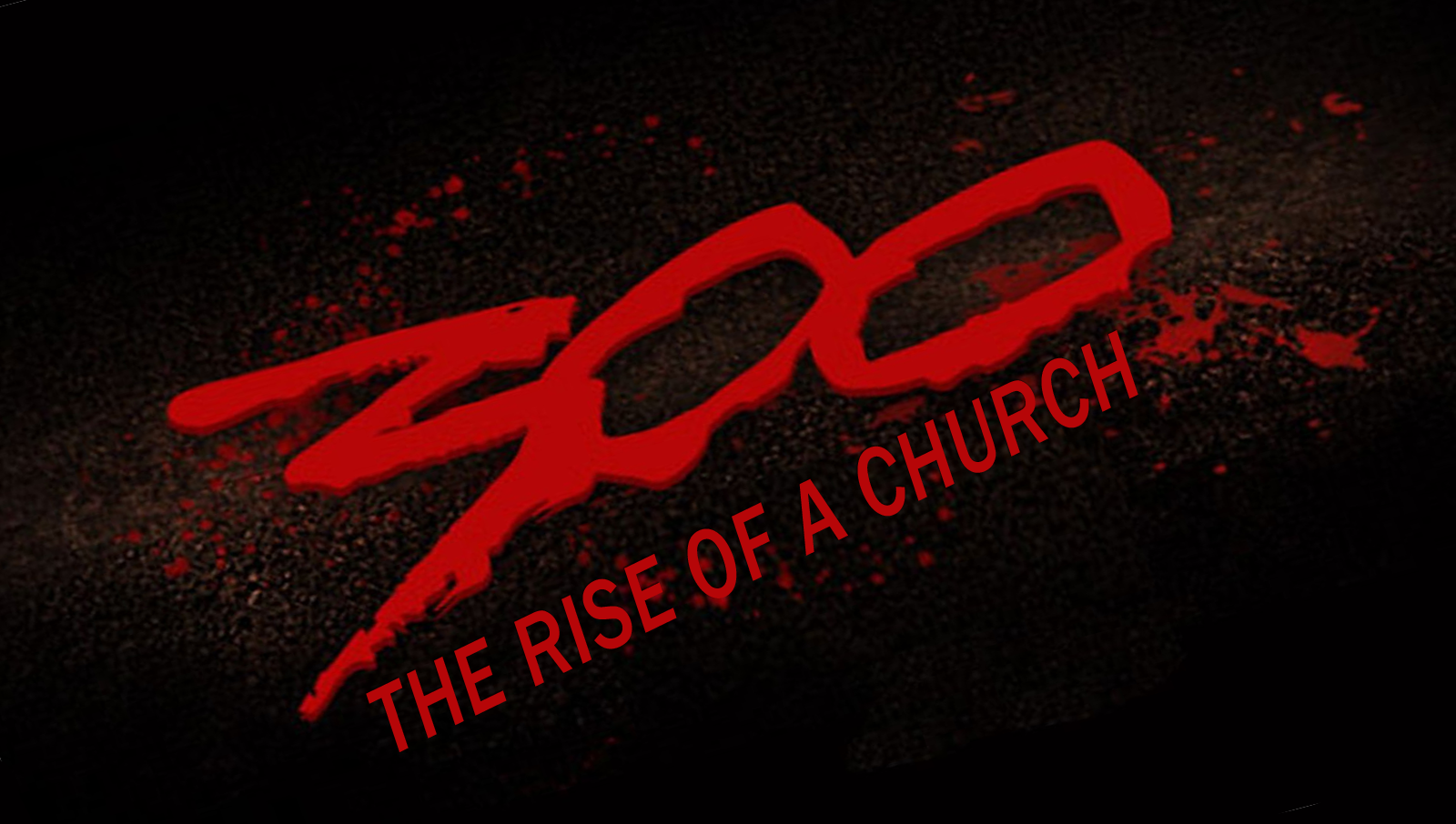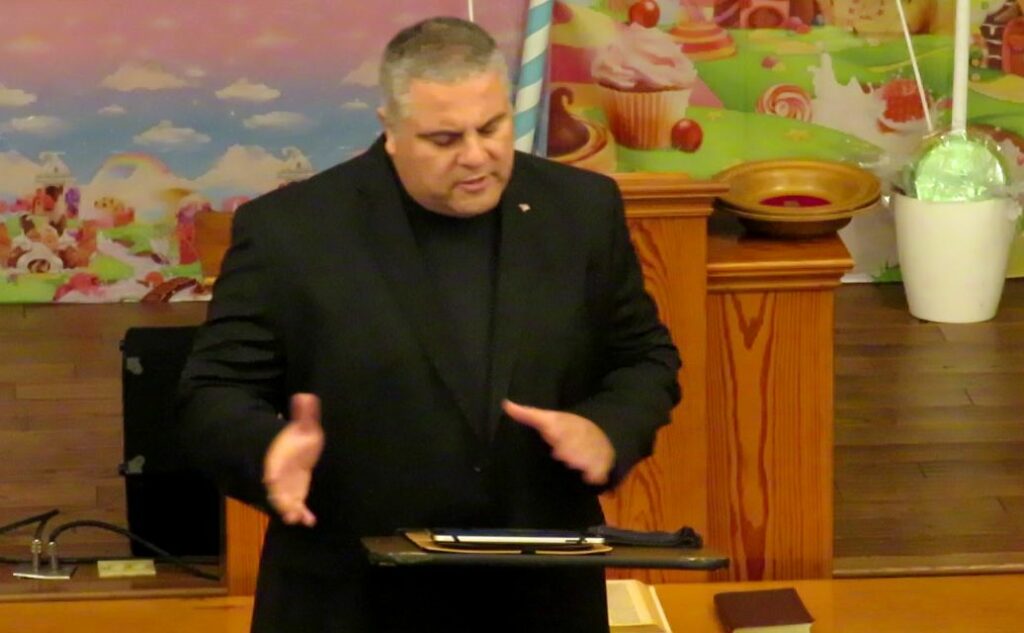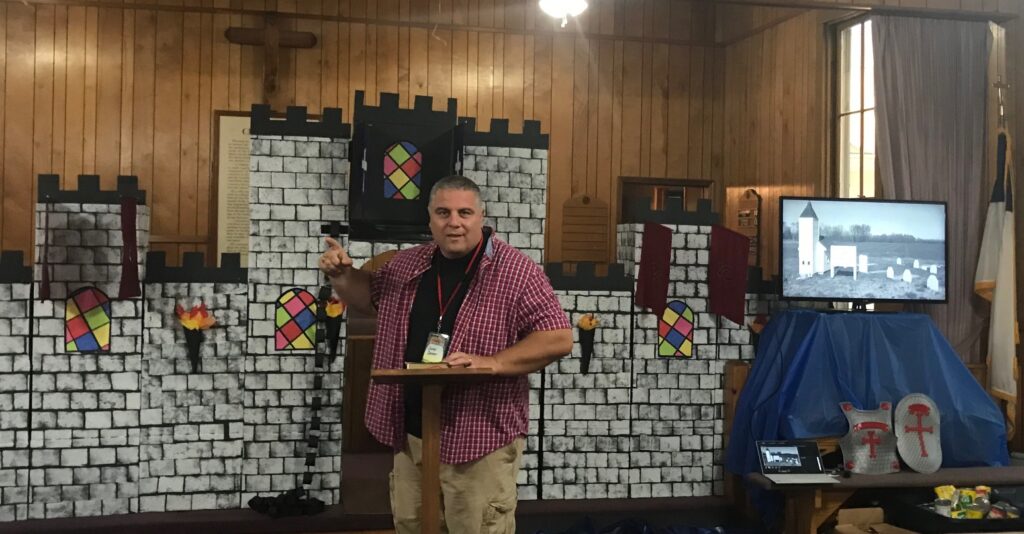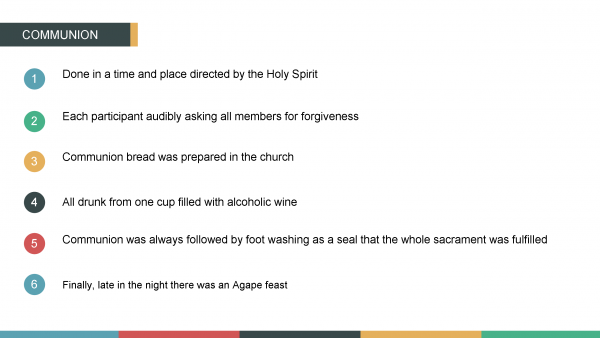The Story of the 1896 Shearer Schoolhouse Revival at Barney Creek
Schearer Schoolhouse revival
In 1896, a revival was begun in a little schoolhouse near Murphy, North Carolina. Strong opposition to it arose almost immediately. When opponents of the revival tried to stop it violently, the people who lived in the humble home shown below, gave it protection. They had no way of knowing that the revival they protected, would bear the fruit of 15,000 churches being started around the world in the 100 years that followed.
When unknown & unheralded preachers, connected to the Fire-Baptized Holiness Association, William Martin, a Methodist preacher, Joe M. Tipton and Milton McNabb, members of the Baptist church, walked from their homes in Monroe County, TN to begin a revival at the Schearer Schoolhouse in Murphy County, North Carolina, they had no way of knowing that what would happen there would still be blessing people a hundred years later. Possibly as you read this true story, you may labor in a place that seems isolated or far removed from the light of recognition and popularity, but what you do faithfully day by day, is planting seed now that will rise up as blessings throughout the years to come. As the song says, “Little is much when God is in it.” Martin, Tipton and McNabb (to our knowledge there are no photos of them) began the revival with one motive, to share Christ with anyone who would listen so their neighbors to spend eternity in hell.
Though they preached simple sermons about Christ and living a holy life, all during the spring of 1896 and on into the summer, amazing and phenomenal Holy Spirit motivated events took place at the Schoolhouse revival. If someone had asked them what a “Pentecostal” was or how to be one, probably nobody there could have answered the question. They were Baptists, Methodists and prossibly a few Presbyterians attending the schoolhouse revival meetings. Once again, the Holy Spirit demonstrated that He moves where He wants upon the hearts that He chooses, regardless the person’s denominational membership or background.
DENOMINATIONAL MEN OPPOSED THEM
This is not intended to be against denominations. Much can be accomplished when people unite their efforts for spreading the Gospel. We should remember that what happened at the Schearer Schoolhouse, put them in direct conflict with their denominations. It was denominational men who opposed them. The disciples also had that conflict when they were before their organization’s Council, they said, ‘”We would obey God rather than man.”
Charles W. Conn, Church Historian for the Church of God and author of “Like A Mighty Army,” says that over 100 people received what is now referred to as “The Baptism of the Holy Spirit” at the Schearer Schoolhouse revival. That’s a big crowd when one considers the population was very sparse (it’s not too crowded in that area even today). Conn’s historical account says, “They laughed (interesting), rejoiced, praised, spoke in tongues and danced for joy.”
It is believed the Schearer Schoolhouse revival was the first time a group of people had received such blessings anywhere on this side of the Atlantic ocean. There had been scattered reports of individuals, some in the NY meetings held by Phoebe Palmer, that had experienced what people now call “speaking in tongues.”
C.T. Davidson, author of “Upon This Rock,” wrote this description. “In buggies and wagons, by horseback and walking, people came from miles around. The lives of hardhearted men and women were changed and sinners were constrained to make restitution as they sought forgiveness.” Davidson continued, “While many were blessed, others rejected the revival because it conflicted with their rituals, creeds and ecclesiasticism. Many faithful members were persecuted and excommunicated. One church excommunicated 30 of them at one meeting.”
Persecution became so intense until the revival was moved a short distance to a more secure log building. Some accounts say the sheriff, local ministers who opposed the revival and a mob of supporters, tore the building down log by log, piled them up and burned them. Without a place to worship, the meetings were finally moved to the tiny home of W.F. Bryant, a respected Christian leader in the community. Opponents came to his house and demanded that the meetings stop. They showered the home with stones and bullets but W.F. Bryant wouldn’t back down. Those who had received the blessings at the revival, began to believe then, as most Pentecostals do today, that what was happening among them first occurred in the Upper Room on the day of Pentecost and was a continuation of what happened there (The fifth book of the New Testament; Acts, Chapters 1 & 2).
Described by Charles W. Conn as pivotal to Church of God formation, a 1896 revival in Cherokee County, North Carolina provoked charismatic phenomena now familiar in pentecostal circles. (1) It is known that the primary evangelists–Martin, Tipton, and McNabb–were connected to the Fire-Baptized Holiness Association. In view of the imposing number of instances of tongues-speech spread throughout nineteenth century North America, (2) the well-traveled reports of such activities in certain circles and especially the presence of Daniel Awrey at Beniah, Tennessee, it seems reasonable to suggest the possibility that William Martin, Joe Tipton, and/or Milton McNabb were exposed to at least stories about tongues-speech before the 1896 revival. (3)
1. Charles W. Conn, Our First 100 Years: 1886-1986 (Cleveland: Pathway Press, 1986) 17, goes on to ascribe importance to the event because it “prepared the way for the universal outpouring that followed ten years later.” This is a welcome appraisal in light of an earlier judgment often bound up in the North American church’s self-perception, namely [Charles W. Conn, Like A Mighty Army (Cleveland: Pathway Press, 1977) 25]: “… this was the first general outpouring that would continue unabated until it encompassed the Christian world.” Cf. Charles W. Conn, Like A Mighty Army: A History of the Church of God: Definitive Edition, 1886-1995 (Cleveland: Pathway Press, 1996) 29-31. The re-evaluation process can be followed in Charles W. Conn, Cradle of Pentecost (Cleveland: Pathway, 1981) 17, “If it was not the beginning of the modern Pentecostal Awakening, it was certainly the greatest prelude to it.” Then “Church of God” by Charles W. Conn in Encyclopedia of Religion in the South, ed. by Samuel S. Hill (Macon: Mercer University Press, 1984) 160, calls this an “extraordinary event” “without precedent in the region.” On the other hand, Conn’s entry in the same volume on “A.J. Tomlinson,” repeats the older view espoused in Army. Conn’s piece on the revival in DPCM, 161, says the group “formulated no doctrine about it. They simply thanked God for the ‘blessing’ …” He opens the article by calling this “one of the earliest known outpourings of the Holy Spirit in America” in contrast to the closing statement that the “universal outpouring would begin ten years later, 1906, in far away California.” cf. E.L. Simmons, History of the Church of God (Cleveland: Church of God Publishing House, 1938) 11f; Crews, The Church of God, 10.
The official Church of God position seems entrenched in the earlier Conn view. During the 1995 Pentecostal World Conference in Jerusalem, Church of God started a celebration of their 100 years of pentecostal revival. This was to have culminated in the 1996 General Assembly of the Church of God. Meanwhile, this viewpoint continued to play a factor in the view expressed in the 1990’s Church of God web page (http://www.mindspring.com/~cog/cog.html) which originally trumpeted “America’s Oldest Pentecostal Church” then replaced with the equally loud “America’s First Pentecostal Church.”
Contrast this to the 2001 celebration in Los Angles of the birth of Pentecostism hosted by the Pentecostal World Conference, noting the planning began while the PWC was led by Dr. Ray H. Hughes of the Church of God. The Pentecostal Charismatic Churches of North America (PCCNA) signed on as partners and the North American Renewal Service Committee (NARSC) endorsed the event as an effort to celebrate all the offspring of the pentecostal revival.
2. Assemblies of God Heritage has analyzed several such examples like that of W. Jethro Walthall. See Glenn Gohr, “William Jethro Walthall and the Holiness Baptist Churches of Southwestern Arkansas,” Assemblies of God Heritage 12:3 (Fall 1992) 19f. Also: Mary Woodworth Etter, Signs and Wonders God Wrought in the Ministry for Forty Years (Indianapolis, 1916) 117; Wayne E. Warner, The Woman Evangelist (Metuchen: Scarecrow, 1986) 70n33; Brumback, Suddenly, 13; Kendrick, Promise, 35; Frodsham, Signs, 11-17; Cyril Williams, Tongues, 50; Bresson, Ecstasy, 109; Worsfold, Charismatic, 82; Lewi Pethrus, A Spiritual Memoir (Plainfield: Logos, 1973) 20; Aimee Semple McPherson, Lost and Restored as cited by Robert Cornwall, “Primitivism and the Redefinition of Dispensationalism in the Theology of Aimee Semple McPherson,” Pneuma 14:1 (Spring 1992) 37; A.M. Kiergan, Historical Sketches of the Revival of True Holiness and Local Church Polity from 1865-1916 (Fort Scott: Church Advocate and Good Way, 1971) 31; Davidson, Rock 1:298; C.E. Jones, “Tongues-Speaking and The Wesleyan-Holiness Question for Assurance of Sanctification,” Wesleyan Theological Journal 22:2 (Fall 1989) 120.
3. “History of Pentecost,” The Faithful Standard 1:6 (September 1922) 6, noted William Hamby as the fourth evangelist. Also Nettie Bryant, Interview p. 2, and W.F. Bryant, Interview p. 2. R.G. Spurling, Jr., married Barbara Hamby in 1876. So McCauley, “Appalachian Mountain Religion,” 360.
The Practice of Corporate Holiness within the Communion Service of Bulgarian Pentecostals
by Dony K. Donev, D.Min.
Historical and Doctrinal Formation of Holiness Teachings and Praxis among Bulgarian Pentecostals (Research presentation prepared for the Society of Pentecostal Studies, Seattle, 2013 – Lakeland, 2015, thesis in partial fulfillment of the degree of D. Phil., Trinity College)
Pentecostal identity was corporately practiced and celebrated within the fellowship of believers through the partaking of Holy Communion. We have otherwise extensively described the Communion service among Bulgaria’s conservatives in Theology of the Persecuted Church (Part 1: Lord’s Supper https://cupandcross.com/theology-of-the-persecuted-church/). Therefore, here we offer just a brief overview of its main characteristics.
- It was done in a time and place directed by the Holy Spirit
- If some did not have water baptism they were taken to a close by river to be baptized while the rest of the church prayed
- Upon returning, if some did not have yet the baptism with the Holy Spirit, the church would pray until all were baptized
- It began with each participant audibly asking all members for forgiveness
- they would also audible respond with the words: WE FORGIVE YOU and may GOD also forgive you
- The communion bread was prepared on the spot baked by women whose names were also reveled in prayer
- All drank from one cup, which strangely for their strict practice of abstinence from alcohol, was filled with alcoholic wine
- Communion was served only to those who had the fullness of the Spirit, and had just requested and were given forgiveness
- The presbyter would quote Jude 20 to each partaking believer thus directing them to audibly speak in tongues before they could participate in communion
- Interpretation often followed to confirm the spiritual stand of the believer
- If there were any leftovers, the Communion elements were served again until all was used
- Communion was incomplete without foot washing as a seal that the whole sacrament was fulfilled.
The US Plans Cooperation with Bulgaria

The US plans to deepen its cooperation with Bulgaria, Moldova, Georgia, Ukraine and Romania. This is clear from the “Black Sea Security Act” introduced in the US Congress.
The document states that the priority will be activities such as intelligence and monitoring of Russian operations in the Black Sea region, the creation of an international headquarters to be responsible for the planning, preparation, implementation and coordination of multinational military forces. Fighting Russian disinformation with the support of the United States is also part of the priorities.
The document recognizes the Black Sea region as an arena of Russian aggression and declares that it is in the interest of the United States to support efforts to prevent the spread of further armed conflict in Europe.
The US ambassador to Bulgaria, Kenneth Merten, recently recalled the document, saying that the document will focus the issues of the region, because there are serious problems in certain parts of the Black Sea.
The second 10 days of the extended Russian military exercise in the economic zone of Bulgaria are currently underway.
CHAPLAINCY MODEL WITHIN THE BULGARIAN ARMY (Submitted to the Manfred Wörner Foundation)
As the country of Bulgaria is now a member of NATO and awaits acceptance into the European Union in 2007, international experts are working with various government institutions and consultant agencies to create an atmosphere in which the Bulgarian mindset can experience a new national revival in the 21st century. NATO’s involvement in this process serves as a catalyst both for reinforcing Bulgaria’s infrastructure and attracting international interest in the country’s affairs. Issues concerning national security, military involvement, international relations, economical development and ethnic diversity are continuously and carefully taken into consideration. However, one issue still remains untouched neither by NATO’s official position in Bulgaria, nor by the Bulgarian government. This is the issue of faith.
Three reasons make such topic of relevant importance. First, Bulgaria claims traditional and historical religious belongingness to the Eastern Orthodox Church. Furthermore, the centuries of religious wars on the Balkans have formed a complete dependency on ethnic religiosity, making faith the prime factor for animosity, hatred and genocide. Finally, the issue of morale and morality in the armed forces remains open for any military unit and will need to be addressed sooner or later in the context of NATO’s presence in Bulgaria.
This research will show how the above issues could be resolved by the presence of a NATO paradigm for chaplaincy within the Bulgarian Armed Forces. The paper will explore the current developments of chaplaincy in Bulgaria on three levels: church, society and government. It will then present the case of “underground chaplaincy” in Bulgaria and provide an appropriate solution to be implemented through the newly established Bulgarian Chaplaincy Association. The conclusion will outline the benefits that can be achieved by a partnership between local NATO representatives and the Bulgarian Chaplaincy Association who combine efforts to restore the spirituality within the Bulgarian Army through the legalization of chaplaincy ministry within its structures.
Bulgarian Chaplaincy Association and Master of Chaplaincy Program Ministry 2023 Priority Review
In the midst of the 2020 pandemic, the Bulgarian Chaplaincy Association was able to continue in active field ministry as well as its Master of Chaplaincy Program in affiliation with New Bulgarian University. Another doctoral graduate from the chaplain’s program graduated in 2020 with special focus of ministry in the Eastern part of Bulgaria. The Association has not completed its task yet, namely, legalizing chaplaincy within the Bulgarian armed forces, but major milestones have been accomplished. Our 2006 proposal submitted to NATO’s Manfred Wörner Foundation is being implemented as foundational to the doctrine and direction of the Association, being now used by other fields and states as well.
As prisoners in Bulgaria were not generally released during the Pandemic, prison chaplaincy continued through the Sofia region office led by one of our students from the Masters’ Program.
Hospital chaplaincy has remained a challenge as many hospitals, especially in mid-Bulgaria, struggled to provide adequate healthcare during the pandemic crises.
International chaplaincy among Bulgarian migrants have continued as allowed by shutdown orders in various countries in the European Union. On several occasions large communities of migrant workers were forced by the economic challenges to return to Bulgaria, which has presented additional opportunities for chaplaincy ministry.
Institutional chaplaincy has been the weakest point as in the past decade, as interweaving religion and business in the Bulgarian context of ministry has remained a strong test for the endurance of chaplaincy. However, the corporate ecosystem in Bulgaria is progressively changing as foreign investors are continuing to establish regional offices and labor opportunities in the country.
Haskovo, Harmanli and the Strandja region toward the Turkish border south of Yambol have been a focal point of chaplaincy among foreign migrants residing in Bulgaria. We have already established relationship with para-church organizations that work successfully among Muslim migrants in the Scandinavian countries. Their experience and training within the Bulgarian context of ministry has been indispensable.
Finally, social involvement through community chaplaincy has been developing well in the past several years, especially in major project areas like the second largest Bulgarian city of Plovdiv, the region of South Bulgaria, along the Black Sea especially in Bulgaria’s largest sea port at Varna, and along the Danube River including the port cities of Silistra, Rousse, Svishtov and all the way to Vidin.
Also important [click to read]:
- U.S. Department of State recognizes our chaplaincy efforts in Bulgaria
- Bulgarian Chaplaincy Association: Integration Proposal with Local NATO Programs
- Bulgarian Chaplaincy Association: Vision and Resolution
- Chronology of our role and involvement in developing Church of God chaplaincy in Bulgaria since 2001
- Master’s of Chaplaincy Ministry Program in Bulgaria Reflections
- The Past Decade of Chaplaincy in Bulgaria (2006-2016)
- Related Publications and Presentations by Cup & Cross Ministries International
Celebrating 14 Years of Chaplaincy on the High Seas
We began our literal journey of ministry on the high seas in 2009. After exploring the opportunity for several years’ prior and submitting applications to various chaplaincy organizations which dealt with such ministry, the doors finally opened for Cup and Cross.
This search for a ministerial identity and its proper application in the real world coincided with the start of the Master’s in Chaplaincy Ministry Program which we designed for the Bulgarian Evangelical Theological Institute in Sofia around 2008-2009. The long standing relationships with professors, active military chaplains from various fields and countries, and the wisdom of several Generals in the field helped us calibrate our ministry focus with what is needed by real people in the real world.
The new fad “to be real” is not enough in a realistic ministry setting. When 25ft. high storm waves beat the aft and the ship is thrown towards the dark wall of ocean waters ahead, one cannot help but “to be real” and depend on a very real and skilled crew. A captain alone cannot run the boat through a storm even if all systems are reported working. It is the crew deep down in the engine room and making its way on the slippery deck that makes it all happen.
The Crew. Some of them have not seen their families for months or even a year at times. They struggle with the same fears and anxieties as the rest of us. Except, while the rest of us can hold on to something for dear life, the crew is obligated by duty to continue to serve and move the boat ahead. The little chapel on the top deck becomes a passage to a lagoon past the riffs of stormy life where stories are shared, prayers are lifted up together and human lives are reclaimed anew for Heaven.
We have found these nontraditional paths of travel and ministry yielding the most unique encounters and connections for Kingdom growth. Our family is thankful for these 10 years and looking forward to even more means of ministry outside of the four church walls. If you would like for us to come to your church as share our journey feel free to reach out to us.
Also important [click to read]:
- U.S. Department of State recognizes our chaplaincy efforts in Bulgaria
- Bulgarian Chaplaincy Association: Integration Proposal with Local NATO Programs
- Bulgarian Chaplaincy Association: Vision and Resolution
- Chronology of our role and involvement in developing Church of God chaplaincy in Bulgaria since 2001
- Master’s of Chaplaincy Ministry Program in Bulgaria Reflections
- The Past Decade of Chaplaincy in Bulgaria (2006-2016)
- Related Publications and Presentations by Cup & Cross Ministries International
More Publications on the Topic and History of Events:
- Chaplaincy Conference and Master’s of Chaplaincy
- Chaplaincy Course in Yambol, BULGARIA
- Bulgarian Chaplaincy Association Annual Meeting
- Family Seminar for Military Men and Women
- Cup & Cross Ministries in Church of God Publications
- The Case of a NATO Chaplaincy Model within the Bulgarian Army
- 10 Years of Military Ministry in Bulgaria
- National Chaplaincy Conference
- Bulgarian Chaplaincy Association Gains Legal Status
- Chaplain Dees Visits Bulgaria
- Chaplaincy Course at the Bulgarian Evangelical Theological Institute
- Bulgarian Chaplaincy Association
- Meeting the NATO Chaplain
- National Chaplaincy Meeting
- Chaplaincy Developments in Bulgaria
- U.S. Bases in Bulgaria
- National Chaplaincy Meeting
- Chaplaincy in Bulgaria
- HEALTHCARE CHAPLAINCY IN BULGARIA
- Chaplaincy in Bulgaria
- Mission Bulgaria
Reflection on on U.S. Department of State recognizing the Bulgarian Chaplaincy Associations
Reflection on on U.S. Department of State recognizing the Bulgarian Chaplaincy Associations
 BREAKING NEWS [October 8, 2007]
BREAKING NEWS [October 8, 2007]
Original source archive: U.S. Department of State:
https://web.archive.org/web/20080709061910/http://www.state.gov/g/drl/rls/irf/2007/90168.htm
For immediate release: Bulgarian Chaplaincy Associations Recognized by U.S. Department of State
U.S. Department of State has released its annual International Religious Freedom Report for 2007. In the section about Bulgaria, the work of Cup & Cross Ministries has been noted through the recognition of the Bulgarian Chaplaincy Association.
Cup & Cross Ministries has worked toward the establishment of the Bulgarian chaplaincy Association since the year 2000. After five years of training chaplains, strategic professional placement and providing ministry in all respective areas of chaplaincy, in 2005 we began the process of registration with the Bulgarian government. This process was both difficult and a long test of our endurance. Although we were not openly denied registration under the 2002 Religious Act, various courts throughout Bulgaria hesitated and delayed our legal registration. Our ministry activities were closely watched and members of our staff were called in for interrogation on various occasions. After resorting to international human rights and religious freedom organizations, finally on February 23, 2007 the Bulgarian Chaplaincy Association received registration by the Sofia Municipality Court to become the first legal chaplaincy organization in Bulgaria officially recognized by the Bulgarian government. The current U.S. Department of State report overviews the above process. The direct quote of the report follows:
International Religious Freedom Report 2007
Released on September 14, 2007
http://www.state.gov/g/drl/rls/irf/2007/90168.htm
Section II. Status of Religious Freedom
Improvements and Positive Developments in Respect for Religious Freedom
Some religious denominations reported that the Religious Confessions Directorate had become more active in assuring that national and local authorities respect and promoted religious freedom and that the national government was more receptive to their concerns. For example, a Protestant group, the Bulgarian Chaplaincy Association, gained legal status on February 23, 2007. The association represents approximately 120 Protestant pastors and individuals mainly affiliated with the Church of God and Assemblies of God but also includes Baptists and Lutherans.
Almost three decades ago, we established the Bulgarian Chaplaincy Association with a vision for ministry in the Bulgarian army, Ministry of Internal Affairs, jail and prison systems, Bulgarian seaports and airports, and the healthcare system. Out of these five goals set before us in 2006 we have fulfilled them all:
1. Tolerant and equal representations of all confessions in the chaplaincy ministry
2. The implementation of a contextualized chaplaincy model
3. The integration of chaplaincy education in all Bulgarian theological higher educational institutions
4. And the educational and consultant work on government and church levels
except:
5. The establishment of legal grounds for regular paid chaplaincy service in the Bulgarian army, Ministry of Internal Affairs, jail and prison systems, Bulgarian seaports and airports, and the healthcare system.
After designing and teaching the Masters of Chaplaincy Ministry program in two major evangelical universities in Bulgaria, we now have some of our trained chaplains working in jails, prisons, healthcare, civil emergency services and the corporate/political level. The legal system in Bulgaria, however, is yet to provide the proper measure for restoring chaplaincy in Bulgaria’s armed forces. To this final step fulfillment we pledge out support in 2016.
Bulgarian Chaplaincy Association: Vision and Resolution
Bulgarian Chaplaincy Association
Resolution No. 1
We,
The founding members of the Bulgarian Chaplaincy Association in its first national assembly today August 19, 2006 in hotel Diana Palace, Yambol
In regard of:
1. Bulgaria’s membership in NATO and its upcoming integration in the European Union
2. The transformations within the Bulgarian Army from mandatory toward standard paid service and the participation of Bulgarian contingent in NATO and UN missions
3. Contract agreement for NATO airbases on Bulgarian territory
4. The strategic renewal of chaplaincy ministry in the Bulgarian army
5. And the present need of chaplaincy ministry integrated in the Bulgarian army, Ministry of Internal Affairs, jail and prison systems, Bulgarian seaports and airports, and the healthcare system,
Declare our support toward:
1. The establishment of legal grounds for regular paid chaplaincy service in the Bulgarian army, Ministry of Internal Affairs, jail and prison systems, Bulgarian seaports and airports, and the healthcare system
2. Tolerant and equal representations of all confessions in the chaplaincy ministry
3. The implementation of a contextualized chaplaincy model
4. The integration of chaplaincy education in all Bulgarian theological higher educational institutions
5. And the educational and consultant work on government and church levels.
We, the founding members of the Bulgarian Chaplaincy Association will work toward the renewal, popularization and equal religious representation of chaplaincy ministry in all professional areas.
August 19, 2006
Diana Palace, Yambol
The RISE of a CHURCH

God’s way out is not yucky nor mucky. When crossing the Red Sea, the Israelites’ rain boots didn’t get stuck in the muck. They walked on DRY land. Believe for the DRY path.

NEEMIAH at the second oldest church in Polk County

Since our Revival Harvest Campaign with the theme of Nehemiah Experience began, we have been receiving miracles reports:
- a lady seeking for the Holy Spirit for some time now, was baptized late at night after the service and began speaking in tongues while on her bed
- heavy anointing to the point of people blacking out
- a truck driver came from the street to seek God
- a spontaneous Jericho march broke out with dramatic spiritual manifestation
- right arm hurt in a car accident many years ago, began feeling sensation in muscles and ligaments again during the service
- a clear direction was given by the Holy Ghost to remain faithful to the vision

Cookson Creek Baptist Church was established in 1836 and currently stands as the 2nd oldest continued church in Polk County. While the foundation and parts of the building are originals, the church has undergone many renovations throughout the years – one of the more recent being the stone, silo-shaped teenage Sunday School classroom. The church sits alongside the beautiful creek, after which it was named, and just down the road from Cookson Creek Cemetery.
The following accounts are recorded by Lynne McClary from the Polk County Chamber of Commerce.
The year was 1936 and Cookson Creek Baptist Church was celebrating it’s 100th anniversary in Polk County, Tennessee. N. B. Fetzer attended the festivities and later wrote about it from his Nashville home.
According to his writings, “There was an immense crowd . . . many of my relatives and old friends, but I missed many faces which used to show up there on May’s Fourth Sunday.” Thomas W. Mathis had been scheduled to give a historical review of the church, as his membership dated back some 70 years. Unfortunately, “Uncle Tommy was called to his heavenly home” on Wednesday prior to the celebration.
Fetzer’s note goes on to state that Miss Mae Ella Stinnett, who served as church clerk, was the ‘power behind the throne,’ and the highlight of the day came when a 3-1/2-year-old young man, the son of Tom Green, sang several stanzas to a “catchy mountain tune”. Fetzer could not remember the youngster’s name, but was told by an uncle that everyone called him ‘Tooter’.
This year Cookson Creek celebrates year 187. The building has undergone many renovations through the years; however the foundation, as well as some of the building itself, dates back to the construction in 1836! It sits alongside the creek for which it is named and just down the road from Cookson Creek Cemetery. The creek was named for Joseph Cookson, a white man who married Jennie Hildebrand. Jennie, who was half-Cherokee, was the daughter of Michael Hildabrand. Joseph and Jennie were moved to Oklahoma during the Cherokee removal of 1838 and lived their remaining lives on the reservation.
TAGS: Blue Springs Church, Beech Springs Church, Little Hopewell Church, Cookson Creek Church, Candies Creek Church, Good Spring Church

HISTORIC SITES OF POLK COUNTY
• Ocoee Indian Village, Hatcher farm. (Early Woodland, Yuchi, and Cherokee
Indians).
• Old Fort Block house, Benton, constructed 1805-1806.
• The Hildebrand House, Ocoee River, early 1830s; oldest house in the county.
• Friendship Baptist Church, First District, 1826, the oldest church in Polk County in
continuous operation. The Columbiana Presbyterian Church was organized in 1822
near Columbus and operated for about twenty years.
• Hiwassee Old Town, oldest and largest of the Cherokee villages in Polk County, was
located on the north bank of the Hiwassee River.
• Site of the discovery of copper on Potato Creek, 1843.
• James McNair family graves, Conasauga.
• Ducktown Basin Museum, Ducktown.
• Old Federal Road, 1804; the Old Stock Road; the Old Copper Road, 1853.
• The Savannah Farm, the largest and one of the oldest farms of the county.
• Columbus, north bank of the Hiwassee River, temporary county seat of Polk County;
had a post office by 1823 and was incorporated.
• Present day site of the Benton Department Store was site of the first home in Benton
(Four Mile Stock Stand); the home of James Lindner and his Cherokee wife, a
descendant of Nancy Ward.
• The Jacob Clemmer house at Benton was built in 1842 and is now owned by Mr. and
Mrs. Kenneth Bishop.
• The Nuchols home and office, (present site of The Drug Store), was built in 1868 and
was occupied in succession by Dr. J. D. Nuchols, Dr. J. G. C. Garner, and Dr. Joseph
E. Hutchins.
• Benton’s first hotel was on the site of Matt Witt’s Store, having been moved from
Columbus in 1840. It was operated by Commodore White, J. Q. A. Lewis, William
Higgins, and last by J. L. and Ben McClary.
• Maggie’s Mill located near Springtown, erroneously believed by some to have
inspired the song “When You and I Were Young, Maggie.” (Original site is in
Canada.)
• Great Indian War Path crossed the river at Hiwassee Old Town and continued
southward to Bridgeport, Alabama.
• The Cookson’s Creek Baptist Church is the second oldest church in the county, with
the Ocoee Baptist Church, Benton, third.
MISSIONS at the oldest church in Polk County

Friendship Baptist Church located in present-day Delano is Polk County’s oldest church in continuous operation – 1826-2026!
The following accounts are recorded by Lynne McClary from the Polk County Chamber of Commerce.
Started just 7 years after the Indian removal in the Hiwassee Cession of 1819, Friendship was near what was then known as Columbus. In June 1826, 10 men and women met in Brother Wilkerson’s home north of Coe Cemetery to organize a church. An ordination service was held July 1826 with members from Eastannallee Church.
Until December 1826, services were in the Wilkerson and Funkhouser homes. At which time a simple log church was built across the road from the present building. A cornerstone still remains of the original building. In 1819, land north of the Hiwassee was ceded to the US by the Cherokee, while the land south of the river to the GA line was not given up until 1838, meaning Friendship was established in free territory 12 years before the rest of present-day Polk County was even US Territory.
A frame church was built in 1856 north of the current building. Raised soil marks that site today. Calvin Denton pastored there 40 years, but little is known about Friendship through the Civil War due to loss of records.
 In the late 1800s to early 1900s the building was used as a school until the county could build one. A box dinner was held to raise money for a bell, used for both the school and church. This bell is the only remaining item from the school and it’s located in the belfry of the current church.
In the late 1800s to early 1900s the building was used as a school until the county could build one. A box dinner was held to raise money for a bell, used for both the school and church. This bell is the only remaining item from the school and it’s located in the belfry of the current church.
The current building was built in 1908, and Friendship’s 100th year was celebrated in 1926 with an all-day singing and history from JD Clemmer. During the celebration a group of Ku Klux Klan marched out of the woods in capes and hoods, went up one aisle, out the other door, and back into the woods, after which the celebration ended.
Friendship Church is an integral part of Polk County history, and future. There’s even a time capsule packed in 1976 scheduled be opened during 2026’s Homecoming.
In 1850 William Forest was licensed to be a Baptist minister ; he was ordained by the Friendship Baptist Church in Delano , Tennessee— where his father – in – law , Samuel Short , had been the first pastor– in 1857
|
FRIENDSHIP BAPTIST CHURCH POLK COUNTY, TENNESSEE |
||
| Friendship Baptist Church was established June 8, 1826, only seven years after the Indians were removed from the area under the Hiwassee Cession of 1819.That makes Friendship the oldest church in what is now known as Polk Co., Tn. Below is a list of the available names of Pastors and Church Clerks from 1826 to 1975. | ||
|
PASTORS |
||
| 1826- Samuel Short 1844- William Forest 1846- B. W. Buford 1849- C. Hoil, E. Newton, & J. Scarbrough 1850- Calvin Denton 1884- H. C. Cook 1888- C. H. Eaton 1889- J. R. Lawrence 1890- J. P. Fore 1891- Luke Shamblin 1893- W. H. Rhymer 1897- R. J. Womac 1903- J. M. Townsley |
1905- P. A. Miller 1906- J. W. Townsend 1912- S. R. Creasman 1915- J. M. Townsend 1917- H. K. Watson 1923- B. P. Kincaid 1924- J. D. Chastain 1925- Roy Thomas 1926- J. W. Townsend 1928- H.W. Passmore, Claude Green 1931- Will Shamblin 1938- M. C. Ledford 1940- C. Doyle Doss |
1945- W. G. Smiley 1946- Charlie Helton 1948- B. P. Kincaid 1949- C. R. Green 1953- Herman Matthews 1954- M. D. Berry 1956- Willie Choat 1960- Hobson Gregg 1965- Don Wilson 1968- Wayne Cooper 1969- Jimmy Hutton 1972- Garvin Chastain 1975- Jack Nunley |
|
Church Clerks |
||
| 1826- John M. Neal 1835- Edward Frather 1836- James Morris * 1879- W. C. Hatcher 1885- G. H. Burns 1885- W. C. Hatcher 1901- Mellie Hatcher Pennell 1910- W. F. Burris |
1911- A. J. Painter 1913- A. C. Howard 1919- Lee Blackwell 1923- E. S. Carruth 1926- James Mose 1929- Haden C. Davis 1939- Martha Watkins 1940- Hershell Davis |
1946- Ulysses Coe 1957- Maxine Eaves 1958- Barbara Lance 1960- Helen Allen 1961- Haroldean Wiggins 1966- Samantha Davis 1973- Wanda Carter |
|
Cemetery Listings |
||
|
Go to Section A Part 1 Go to Section A Part 2
|
||
*Some names are missing due to lost Church records. The information below came from a booklet titled” 150 Years Of Friendship”, by Terry Blair, Wanda Carter, Johnny Coe, and Deborah Williams. The booklet was handed out to to the congregation of Friendship at the July 4th Homecoming, a celebration of the 150th year, in 1976. Thanks to Connie Baumann for supplying this information!
A BAND OF BELIEVERS on the BANKS of BARNEY CREEK
By Dallas Bogan (Reprinted with Permission. This article was published in the LaFollette Press)
While many churches in the South had already established their existence and their doctrines, an invitation went forward to those who wanted to fully establish the readings and beliefs of the Bible as it was written. With this request a small group of nine believers formed the Christian Union on the banks of Barney Creek in Monroe County, Tennessee, on August 19, 1886. Activities of this joining together on a hot scorching day in the Unicoi Mountains in eastern Tennessee are not known to any degree, but their mission was fully accomplished. R.G. Spurling was selected as pastor of the church while Richard Spurling, his father, moderated the proceedings.
The small congregation knew it was futile to “reform” their own existing churches and so decided to “form” their own church. The intent was to re-establish sound scriptual doctrines of the Bible, and to promote evangelism and Christian service.
Barney Creek still remains a small stream that flows quietly through the mountains. Livelihood in this part of the Appalachian Mountains has still much to be desired. However, early folks in this part of the mountains who sought God found the New Testament Christianity and gathered to later become the Church of God, as we know it today. At a later time the experiences of sanctification and Spirit baptism were added.
This vision of Christian unification was the spiritual desire of R.G. Spurling and his father Richard Spurling, the former being a licensed minister in the Missionary Baptist Church.
Richard Spurling was an ordained elder and began to seek God regarding the abuses he saw in the local churches around him. He was quite perterbed concerning the spiritual neglect and ill treatment he witnessed in these congregations. He was also troubled with challenging traditions and creeds that he deemed a hardship for God’s people.
Calvin, Luther and other famous reformers had brought about many changes to the church such as a “right belief” rather than a “true relationship” with Jesus Christ. These gallant reformers’ changes concentrated more-or-less on creed rather than the leading of the Holy Spirit and one’s own principles.
The focal point of R.G. Spurling was Christianity and the law of love rather than creed or doctrine, in which the latter could possibly divide Christians. He believed that the New Testament was the “only infallible rule of faith and practice” and contains everything “necessary for salvation and church government.”
Spurling was a part of the broad re-establishment that moved through the church world in the United States during the 19th century. At this time, the Christian Union, similar to other groups such as the Churches of Christ and Churches of God (Anderson, Indiana), likened to reinstate New Testament Christianity. The New Testament was given different emphasis by these groups, but all wanted to restore some part of the apostolic church. Some of these groups focused on government, some on everyday life, some on the message, but all longed to return to contemporary Christian life, an important item that had been lost in the superseding centuries. Spurling saw in some teachings that a coarseness and individuality subdued the Gospel and led to dividing the body of Christ more so than to Christian unity.
A.J. Tomlinson, a friend of R.G. Spurling’s, wrote that Spurling preached whenever and wherever he had an opportunity. Tomlinson wrote that Spurling “in this way the minds of the people were continually agitated, and gradually prepared for the work of the Spirit that was to follow. For ten years this servant of God prayed, wept and continued his ministry against much opposition and under peculiar difficulties, before seeing much fruits of his labor.”
Benjamin Hardin Irwin acquired a more intense tactic to the Christian life and taught a “third blessing” called “the fire.” He structured, in Iowa, in 1895, the Fire-Baptized Holiness Associations, which later extended around the United States. During the next year he preached in South Carolina and Georgia. He had, by 1898, organized an international Fire-Baptized Holiness Association in Anderson, South Carolina, and during this time he had published a periodical called “Live Coals of Fire.” His message was heard and accepted in eastern Tennessee and western North Carolina where Spurling was ministering.
In 1896, persuaded by Irwin’s movement, four men began a revival in the Shearer Schoolhouse near Camp Creek in Cherokee County, North Carolina. William Martin, a Methodist, along with Baptists Joe. M. Tipton, Elias Milton McNabb, and William Hanby, preached a ten-day meeting that attracted much attention to the area. Tomlinson states that “they preached a clean gospel, and urged the people to seek and obtain sanctification subsequent to justification. They prayed, fasted and wept before the Lord until a great revival was the result.”
Twenty-one years after that infamous meeting at Barney Creek, and the formation of the Christian Union, the ever-growing movement would establish themselves as the Church of God. The beckoning call of the original Barney Creek meeting has now established a worldwide membership of over 5 million in more than 145 countries.
Reports of Church of God revivals find that hundreds are getting saved and filled with the Holy Ghost, more so now that at any other time. World evangelism is the call of the Church of God through descipleship and prayer, as well as committment.









